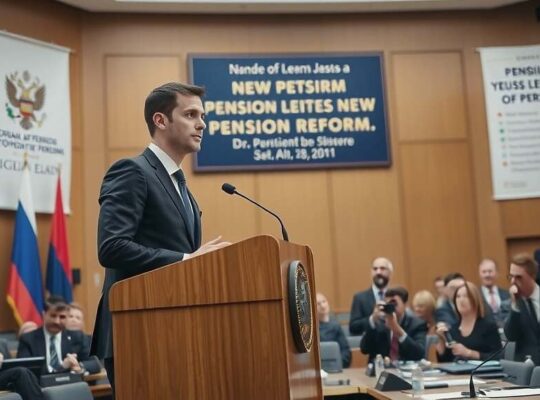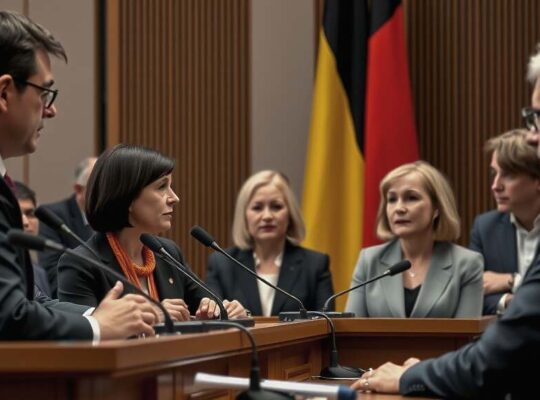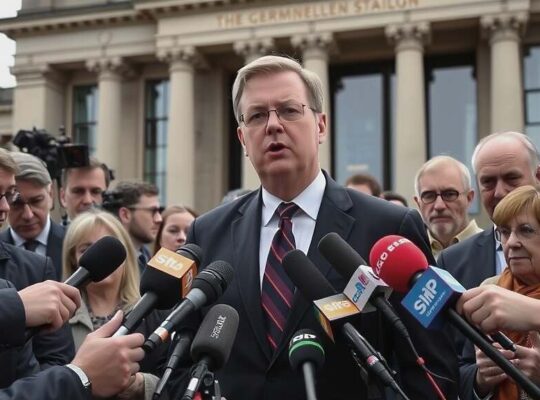Internal divisions within the Christian Democratic Union (CDU) are intensifying over proposed pension reforms, highlighting a generational rift and raising questions about the party’s long-term strategy. Hubert Hüppe, Chairman of the CDU’s Seniors’ Union, has publicly acknowledged the validity of concerns voiced by the party’s youth wing, the Junge Union (JU), regarding the financial sustainability of the current pension model and the impact of demographic change.
CDU leader Friedrich Merz recently courted controversy at the JU’s national congress, appearing to dismiss calls for revisions to the government’s pension package. His justification – the need to balance the interests of all CDU factions, including the Seniors’ Union and maintain broad support – underscored a perceived unwillingness to engage with the concerns of younger party members. This stance drew criticism, with JU delegates expressing disappointment and disillusionment with Merz’s approach.
Hüppe’s comments, delivered ahead of an address to the JU congress, carefully navigated the internal tension. While avoiding direct directives, he implicitly recognized the legitimacy of the JU’s resistance, demonstrating a departure from the perceived inflexibility exhibited by Merz. He explicitly refrained from advising the JU to abandon their opposition, signaling a potential shift in the Seniors’ Union’s approach.
Despite the underlying discord, Hüppe emphasized the need for a cooperative approach. He characterized the division not as a burgeoning coalition crisis, but as a challenge to find a viable solution for the future of Germany’s social security system. He suggested interim measures and greater flexibility, allowing for adjustments within the existing timeframe leading to 2031.
Defending Merz’s presence at the JU congress, Hüppe painted a picture of open dialogue and engagement with the younger generation. However, this portrayal seems to contrast with reports of a palpable lack of enthusiasm from JU attendees, suggesting a disconnect between the perceived image of engagement and the reality experienced within the youth wing. The escalating disagreement exposes a fundamental challenge for the CDU: balancing the concerns of an aging electorate with the anxieties of a younger generation facing a rapidly changing economic landscape. The divergent viewpoints risk alienating a crucial demographic and potentially undermining the party’s long-term electoral prospects.












